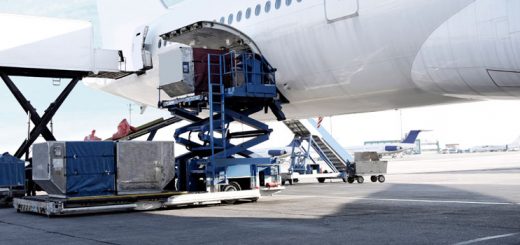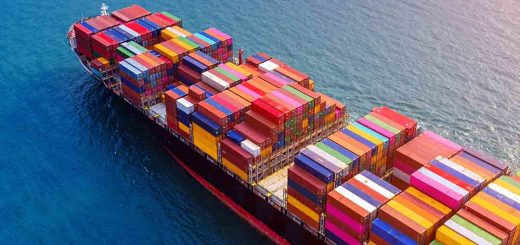Prospects of an Improved Maritime Logistics in Nigeria
What is Maritime Logistics?
Maritime logistics refers to the planning, coordination, and management of the transportation of goods and materials by sea. It includes the physical movement of goods, as well as the associated activities such as documentation, customs clearance, and cargo handling. Maritime logistics plays a crucial role in international trade, as the majority of goods are transported by sea. Efficient and effective maritime logistics are essential for ensuring that goods are delivered on time, at the right cost, and in good condition.
It involves various stakeholders, such as shipping lines, ports, freight forwarders, and logistics companies, who work together to ensure smooth and seamless operations. Advanced technology, including tracking and monitoring systems, has made maritime logistics more streamlined and transparent, enabling better decision-making and improving overall efficiency.
In Nigeria, the 2019 presidential election has come and gone, but our focus today is what continuity in governance means for the maritime Logistics industry in Nigeria. Beyond the promises and prospects of the first tenure of this current administration, there is a renewed level of optimism from all stakeholders that ongoing logistics policy proposals and legislative bills that are either being debated or awaiting presidential assent will soon become a reality.
Given that Nigeria currently ranks 145th in the Ease of Doing Business Index out of 190 economies and 110th in the World Bank Logistics Performance Index, it is not only pertinent but urgent for the following Bill and policy initiatives to come into full effect this year to enhance the nation’s Logistics Performance and global performance rating:
- National Transport Commission Bill, 2016
- The Establishment of Truck Transit Parks as recommended by the Shippers Council
- Development of Dry Inland Ports across all geopolitical zones
- Expansion and Upgrade of Eastern and Southern Ports
The scope and benefits of the National Transport Commission Bill and Policy initiatives will be considered briefly as follows.
National Transport Commission Bill, 2016: Once signed into law, the bill will establish a National Transport Commission to provide an efficient, economic regulatory framework to the transportation industry, monitor compliance, promote multimodal transportation and drive the implementation of the National Transport Policy. The report of the Inter-Ministerial Committee on Draft National Transport Policy suggests that, “the National Transport Policy is a practical and pragmatic response to Nigeria’s need for an integrated, modern and efficient transportation industry that can serve as a vital gateway and link for Nigeria’s internal and external trade in agriculture, energy, mining/oil and gas, manufacturing and other sectors that depend on transport”.
The Establishment of Truck Transit Parks As Recommended by The Shippers Council: In line with the Federal Government’s directive to address the issue of port congestion and to provide a temporary resting place for truck drivers who travel long distances, the Nigeria Shippers’ Council continues to promote the establishment of Truck Transit Parks at eight strategic locations across some geopolitical zones of Nigeria. The locations include Lokoja (North-Central), Obollo-Affor and Onitsha (South-East), Jebba (North-West), Ore, Ogere and Porto Novo Creek (South-West), Mararaban (North-Central).
Generally, the establishment of these transit parks will decongest our ports, reduce the cost of logistics operations but promote cargo safety and the welfare of the truck drivers. In addition, Creation of Truck Transit Parks are crucial to the operation of Inland Container Depots (ICDs); facilitate efficient cargo delivery to Nigeria’s hinterland importers and exporter; serve as added stimuli for economic development.
Development of Dry Inland Ports across all geo-political zones: This another policy initiative by the Federal Ministry of Transport that has commenced with the establishment of the Kaduna Inland Dry Port. Apart from the Kaduna dry port; the Ibadan dry port that has been awarded for construction, there are six others yet to be developed across the nation. Dry ports are connected to the sea by rails, land and air. In the Nigeria context, the Federal Government had continued to develop rail projects, linking the sea to the dry ports. Some of the major benefits include the decongestion of the seaports, therefore allowing container clearing formalities to be performed at these dry ports.
Expansion and Upgrade of Eastern and Southern Ports: There is the urgent need to develop eastern and southern ports. There are existing ports in Warri, Port-Harcourt (Area One and Onne), Sapele (Koko) port, Calabar and yet to be developed Ibom Deep Seaport at Ibaka, Akwa Ibom State. What is required are policy action and implementation to widen the river channels leading to these ports so that they can accommodate large vessels who prefer Lagos ports for now.
Conclusion
The benefits of assenting to and implementing the National Transport Commission Bill; the establishment of Truck Transit Parks, Dry Inland Ports; the upgrading and expansion of eastern and southern ports will not only decongest Lagos ports of the traffic nightmares they currently suffer but will also do the logistics and transportation sector a lot of good.
Firstly, it will make the Customs Clearing process more efficient. Secondly, it will enhance the quality of service delivery across the industry. Thirdly, it will reduce the cost of logistics. Fourthly, it will make doing business in Nigeria easier and lastly, it will improve Nigeria’s rating on the Global Logistics Performance Index and attract a higher flow of Foreign Direct Investment into Nigeria, economic expansion and job creation.
Read more: The Maritime Industry of Nigeria, Challenges and Sustainable Prospects



